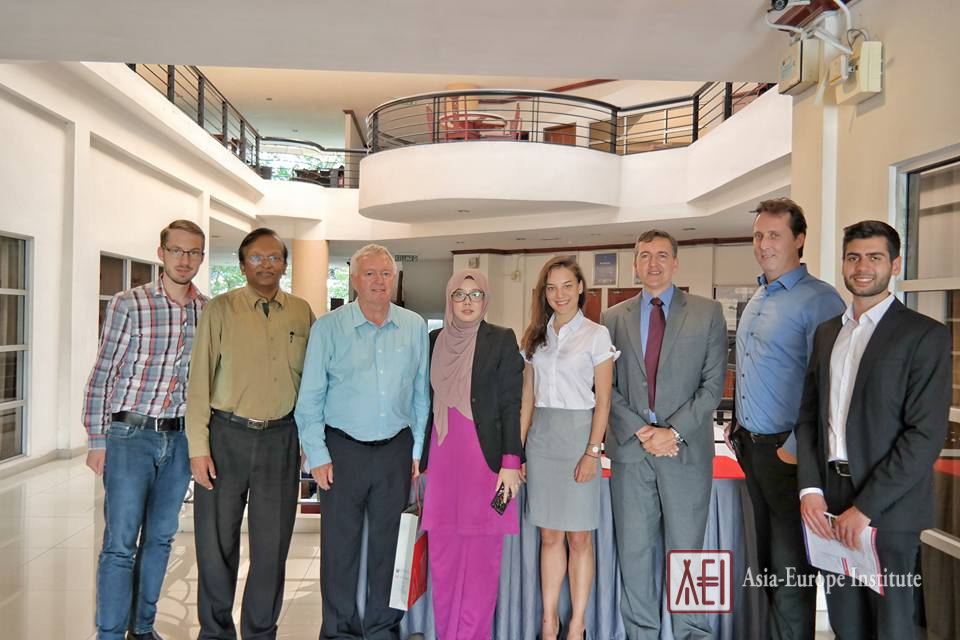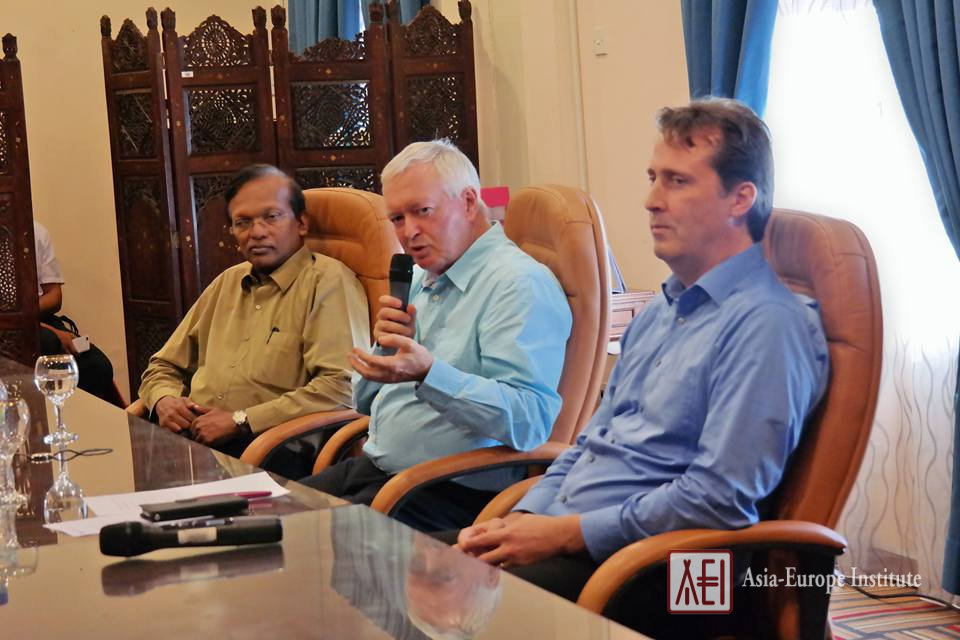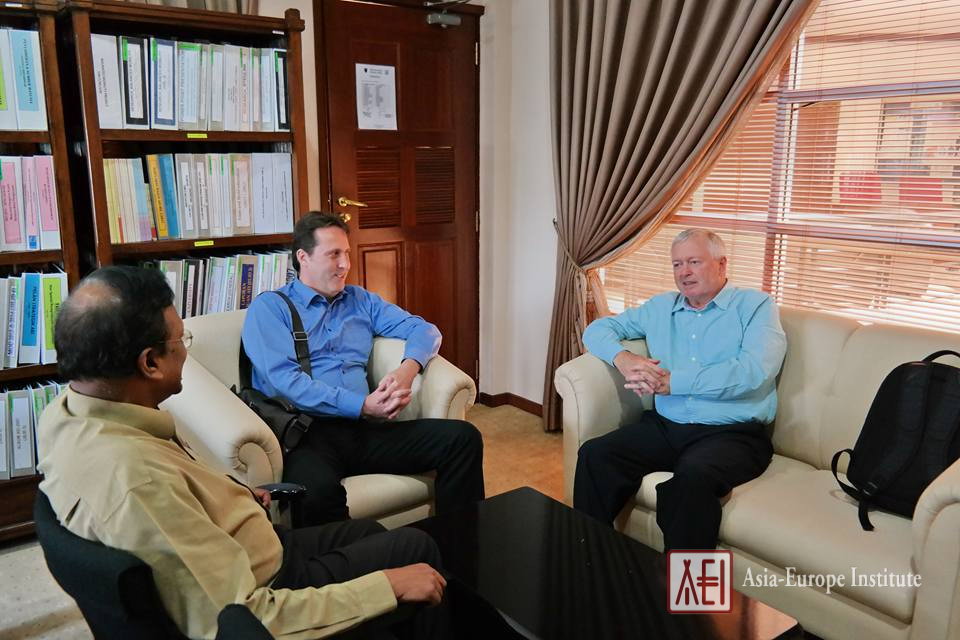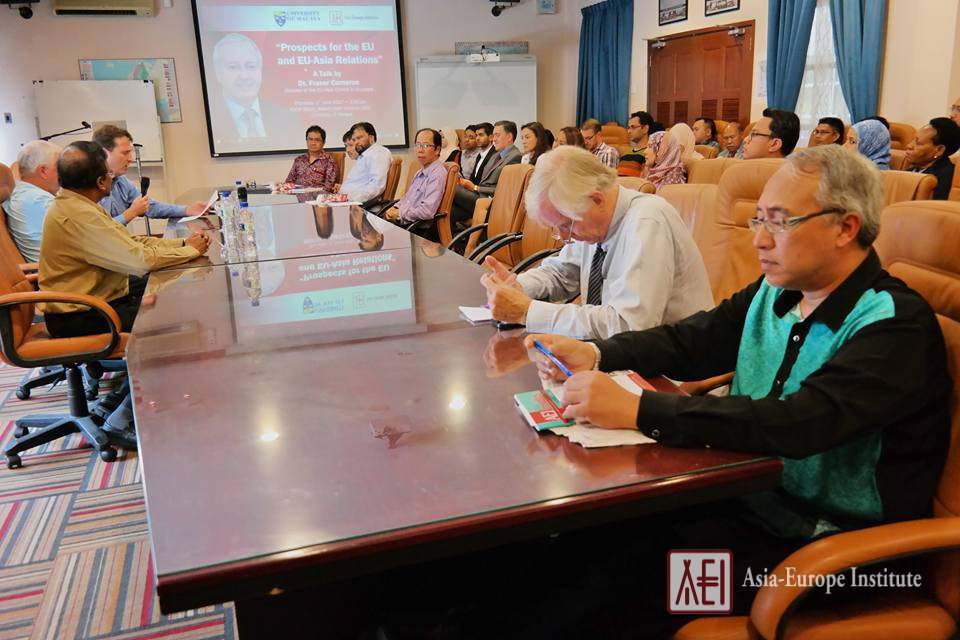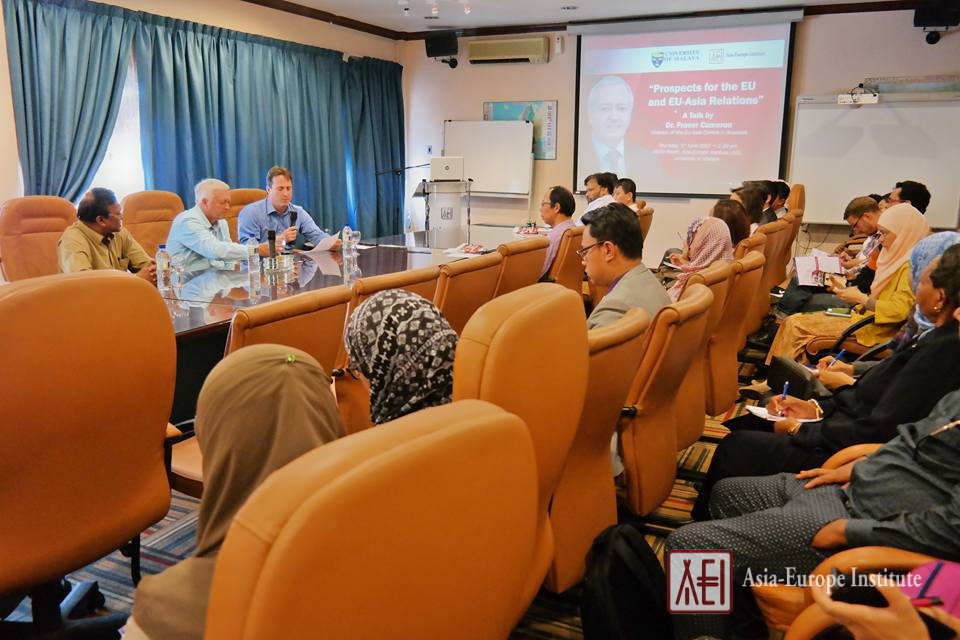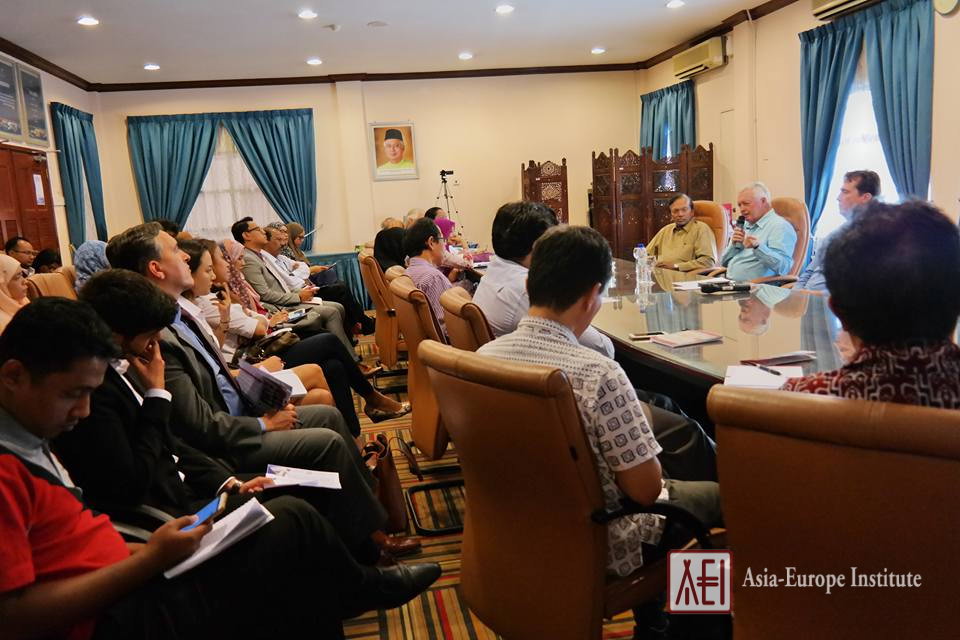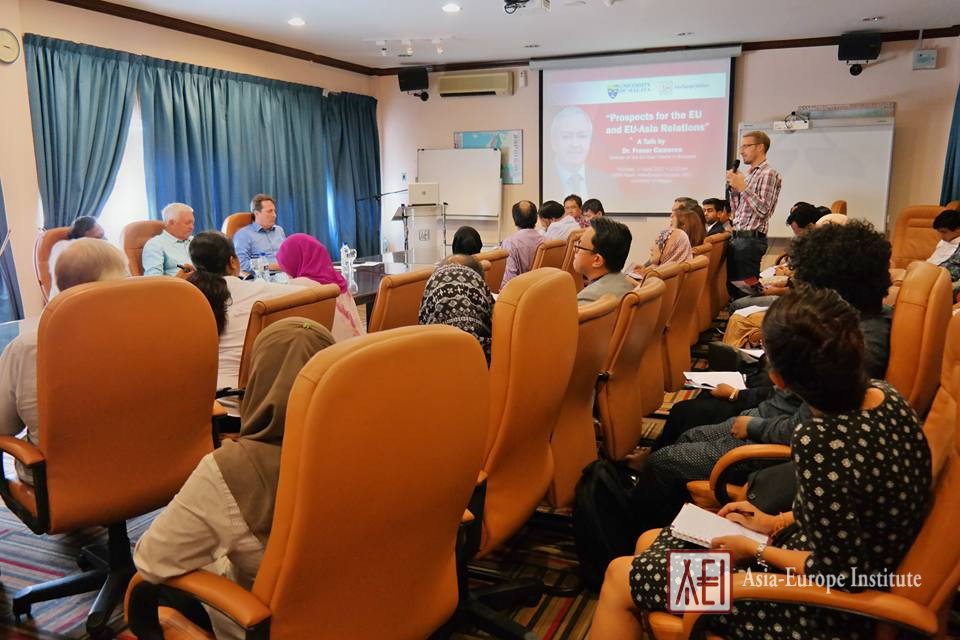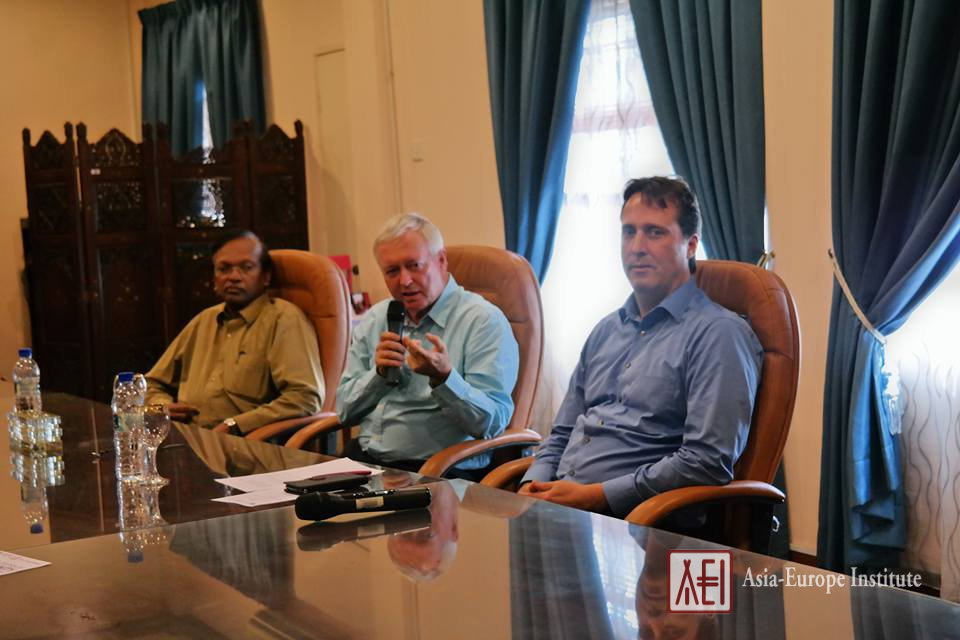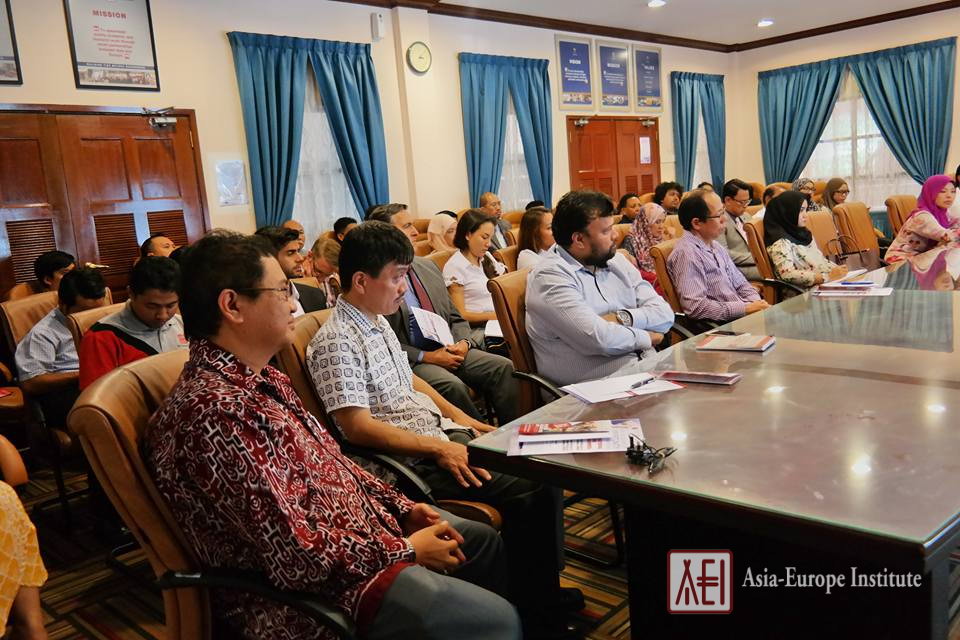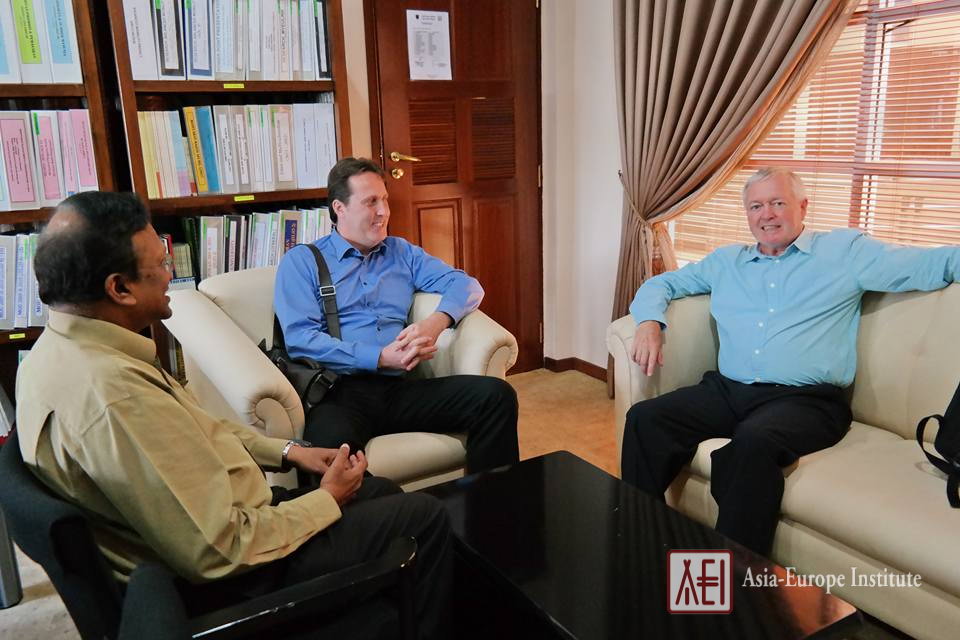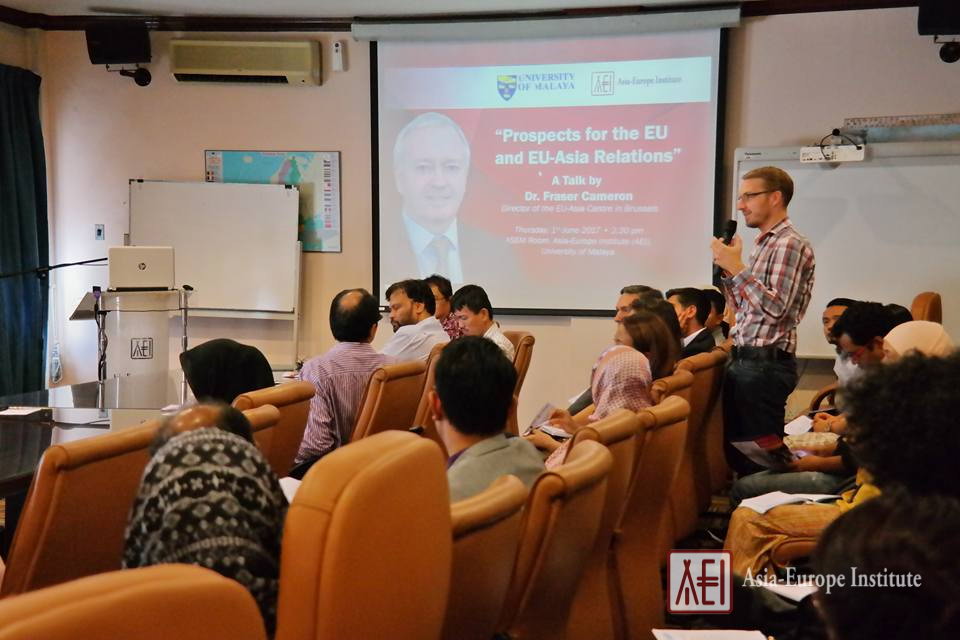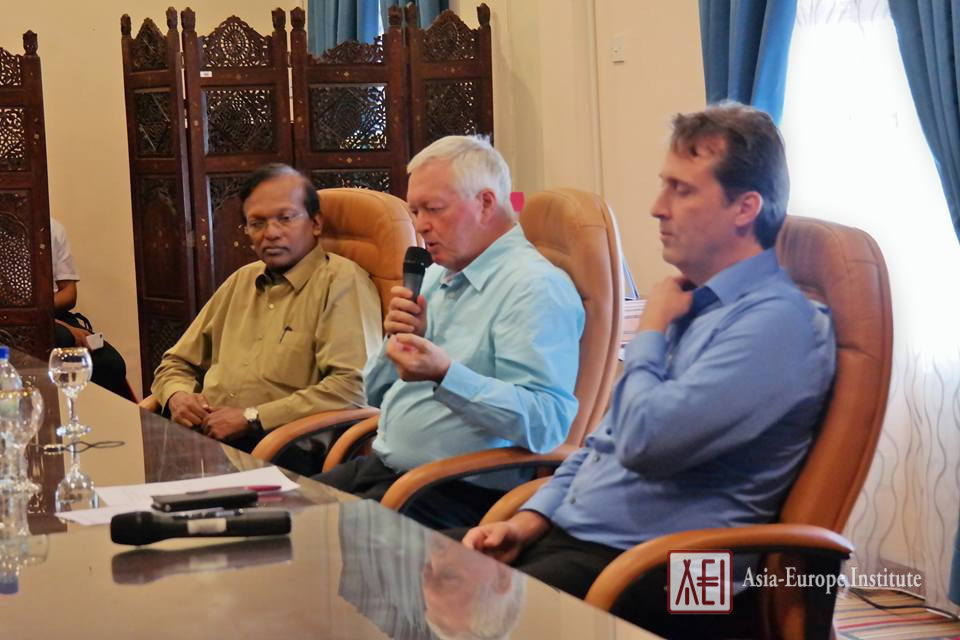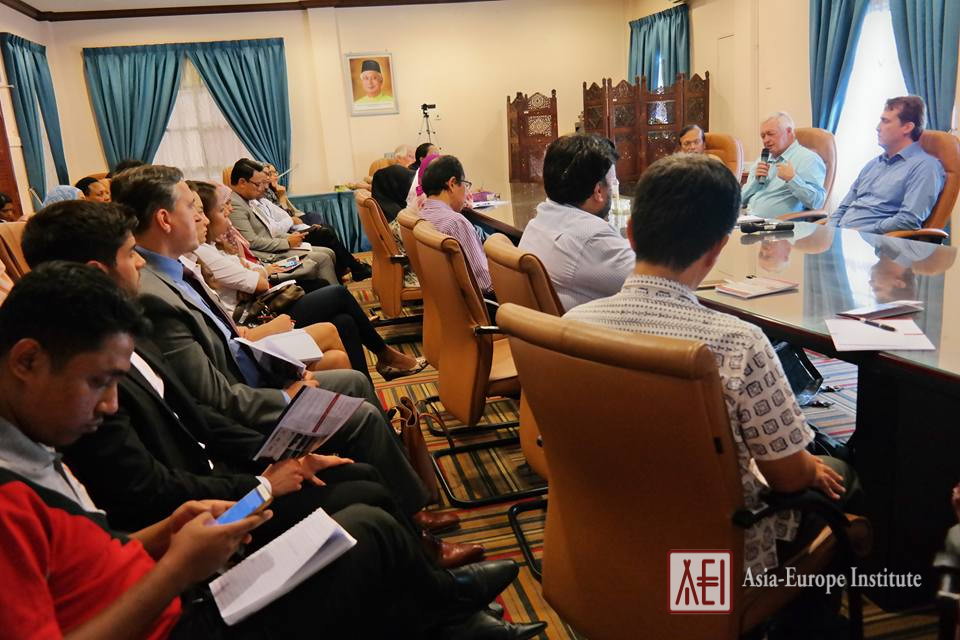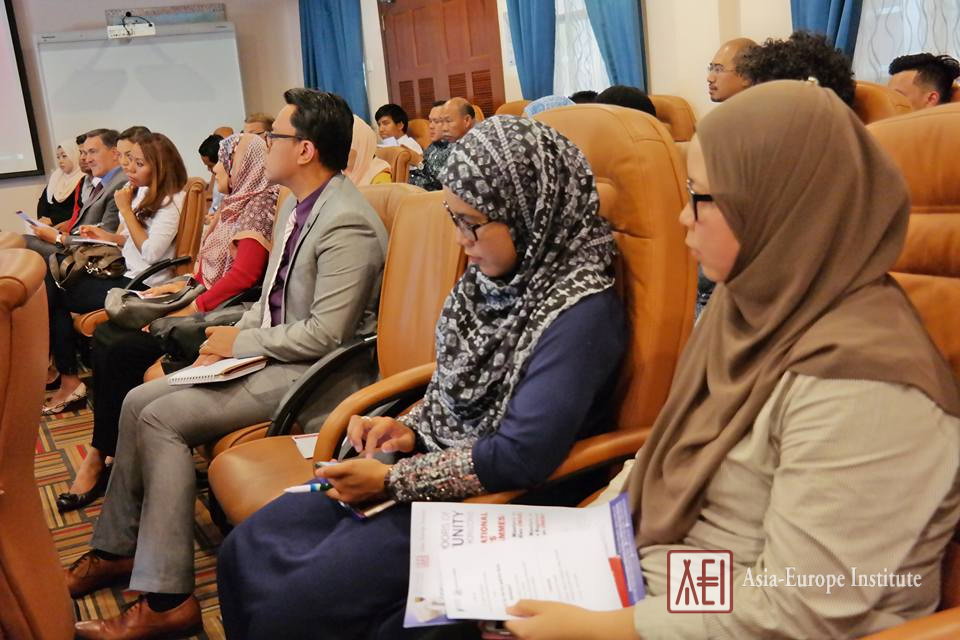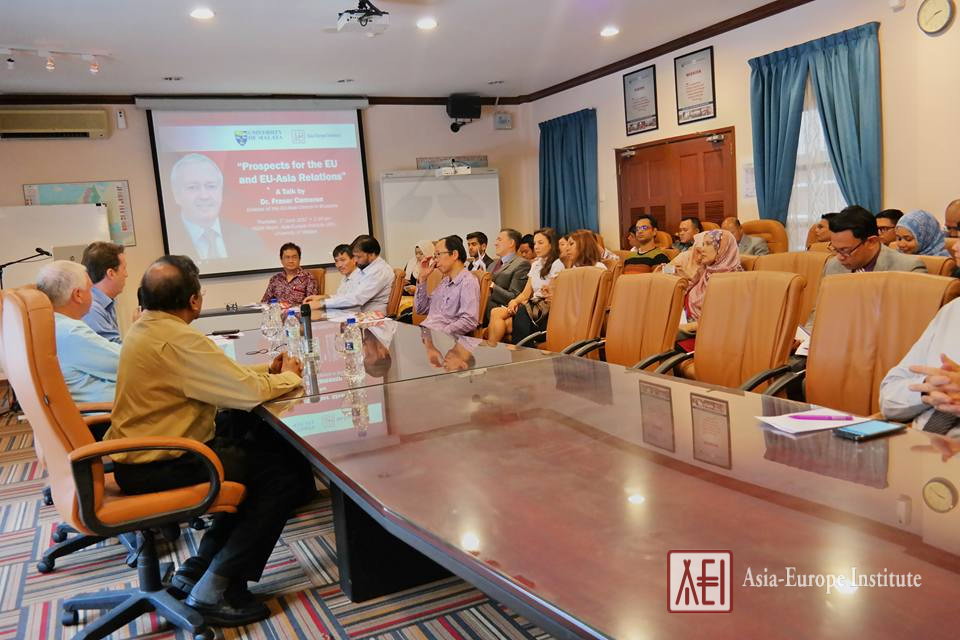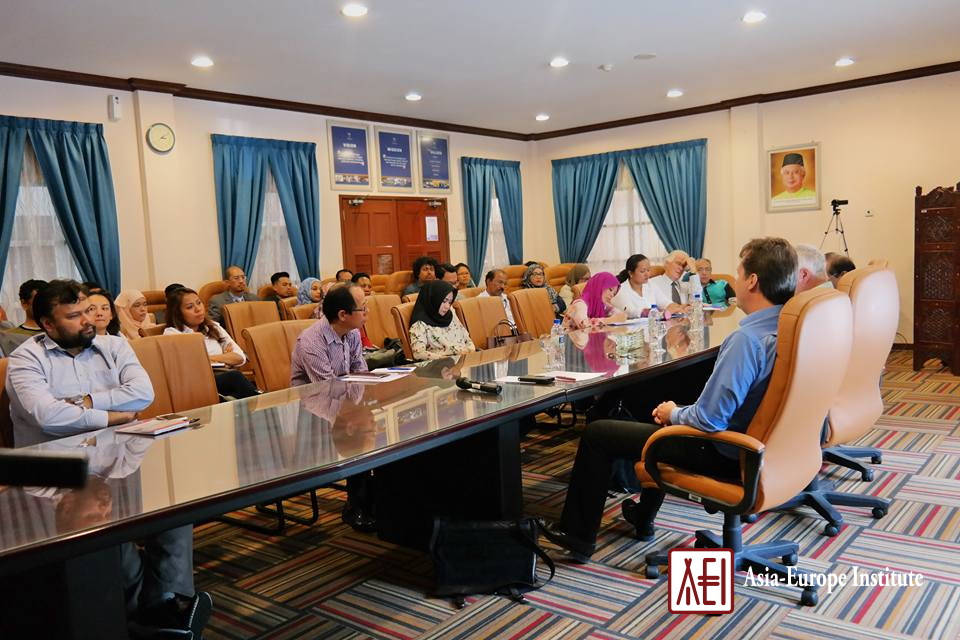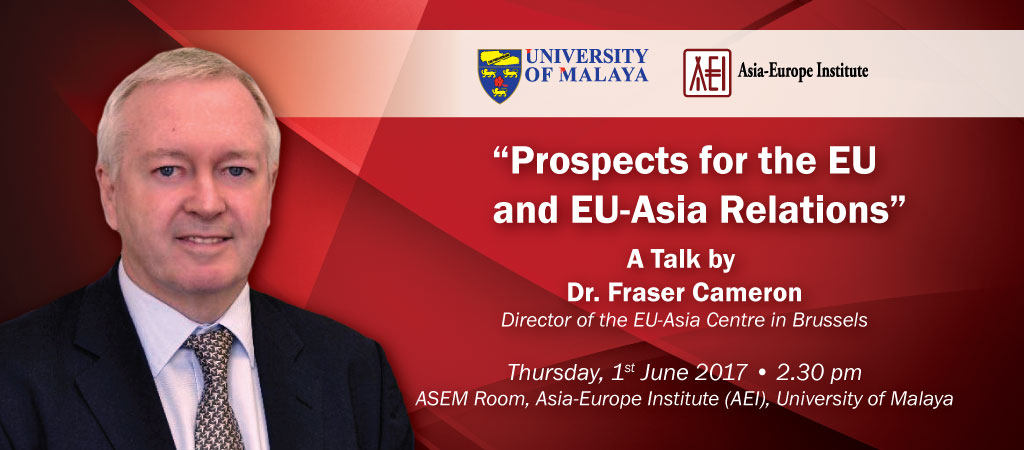Report on the Talk by Dr. Fraser Cameron: Prospects for the EU and EU-Asia relations
HomePrepared by Timotheus J. Krahl & Aliyyah Nuha Azman
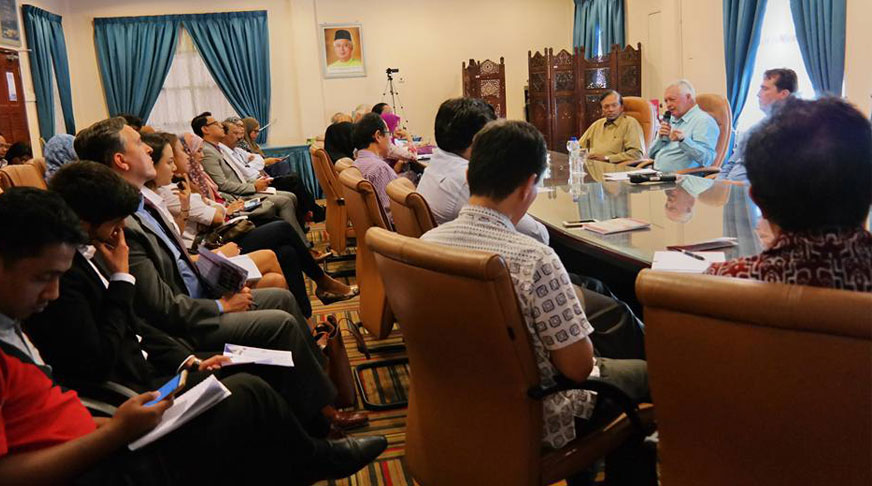
On 01 June 2017, the Asia-Europe Institute hosted Dr. Fraser Cameron, Director of the EU-Asia Centre in Brussels (Belgium) who gave a talk on the “Prospects for the EU and EU-Asia relations”. A former British diplomat and EU official, Dr. Cameron has worked on EU affairs for the past 25 years.
Cameron talked about the state of the EU in light of BREXIT and the movement of anti-European forces within the union. According to him, the first has resulted in a lose-lose situation, with British losses higher than Europe’s. With regards to the second, the recent elections in the Netherlands and France gave the EU new confidence and the axis Paris-Berlin – the engine of the European integration – is likely to be rejuvenated after the general election in Germany this fall, with a new momentum to be expected.
There are also direct implications from the US retreat from global affairs, according to Dr Cameron. The Trump administration’s decision to withdraw from the Paris Agreement will result in cooperation between China and Europe on the issue of climate change. Also in other policy areas Beijing realizes the need to cooperate and engage with the international community. Dr Cameron made the point that China turns more frequently to the EU on matters such as safeguarding trade standards and is actively involved in anti-piracy activities in the Gulf of Aden. Furthermore, he pointed to the over 60 dialogues being held on various issues such as human rights and democracy, especially as China’s overseas activities in Africa have experienced some difficulties, and Beijing has turned to the EU to learn from their past experience and best practices.
This shows, that despite a remarkable track record and rising trade figures, European relations to Asia are not only limited to economics. Additionally, the EU has a steady relationship with Japan being its second biggest trading partner in Asia after China. Negotiations are under way to conclude the EU-Japan Free Trade Agreement by the end of 2017. Another important partner is South Korea, with whom the EU has already a Free Trade Agreement. The new president, Moon Jae-in, is making EU-Korea relations a priority - installing a special envoy in Brussels. In contrast, the relationship with India could be stronger - and here there is a need for both partners to work out differences in their approach to various policy areas.
Dr Cameron highlighted that the EU envisions a strategic partnership with ASEAN, despite disagreement over the political situation in Thailand and the Rohingya issue in Myanmar. The EU is involved in regular and extensive dialogues with ASEAN, not only expressed in major meetings – with the next ASEM Summit to be hosted by the EU in Brussels in 2018 – in less formalised settings.
Especially in times of great uncertainty, the EU represents a strong anchor within the multilateral system, according to Dr Cameron. Hence, for the benefit of both partners, there is the necessity to develop the relationship. Yet, as much as this is needed, the EU also experiences challenges within the context of ASEAN. For instance, an EU-ASEAN FTA seems to be impossible because of the economic diversity throughout the region, and there is therefore a preference for individual trade agreements. The ASEAN Secretariat is understaffed and underfinanced - and the association needs to decide who has the right to represent its member’s vis-à-vis the EU. Beyond that, ASEAN needs to live up to its self-given agenda, be it to fully implement the AEC, the Human Rights Charter or fight corruption. According to him, the EU has a lot of ideas and plans in the drawers but waits on ASEAN to lay the groundwork so that they can be put to action.
The talk was attended by more than 40 people with representatives from the Ministry of Foreign Affairs Malaysia and the Ministry of International Trade and Industry, and also from the respective EU embassies in Malaysia, academics and students.
